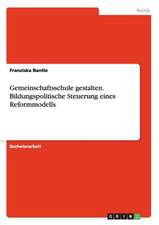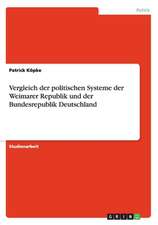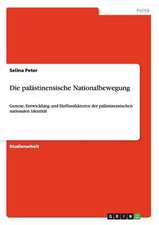Southern Insurgency: The Coming of the Global Working Class: Wildcat
Autor Immanuel Nessen Limba Engleză Paperback – 19 oct 2015
Even as labor in the developed world seems to be in retreat, industrial struggle continues elsewhere—and with particular force in the Global South. In Southern Insurgency, Immanuel Ness provides a thorough and expert perspective of three key countries where workers are fighting the spread of unchecked industrial capitalism: China, India, and South Africa. In each case, he considers the broader historical forces in play, such as the effects of imperialism, the decline of the international union movement, class struggle, and the growing reserve of available labor. He then narrows his focus in each case on the specifics of the current grassroots insurgency: the militancy of miners in South Africa, new labor organizations in India, and the rise of worker insurgencies in China.
The product of extensive firsthand field research, Southern Insurgency paints a picture of the new industrial proletariat in the Global South—a group that lives a precarious, frightening existence yet at the same time offers hope for new approaches to solidarity and the anti-capitalist struggle.
The product of extensive firsthand field research, Southern Insurgency paints a picture of the new industrial proletariat in the Global South—a group that lives a precarious, frightening existence yet at the same time offers hope for new approaches to solidarity and the anti-capitalist struggle.
| Toate formatele și edițiile | Preț | Express |
|---|---|---|
| Paperback (1) | 207.31 lei 6-8 săpt. | |
| PLUTO PRESS – 19 oct 2015 | 207.31 lei 6-8 săpt. | |
| Hardback (1) | 649.75 lei 6-8 săpt. | |
| PLUTO PRESS – 19 oct 2015 | 649.75 lei 6-8 săpt. |
Preț: 207.31 lei
Nou
Puncte Express: 311
Preț estimativ în valută:
39.67€ • 41.42$ • 32.83£
39.67€ • 41.42$ • 32.83£
Carte tipărită la comandă
Livrare economică 04-18 aprilie
Preluare comenzi: 021 569.72.76
Specificații
ISBN-13: 9780745335995
ISBN-10: 0745335993
Pagini: 224
Dimensiuni: 135 x 216 x 20 mm
Greutate: 0.3 kg
Editura: PLUTO PRESS
Colecția Pluto Press
Seria Wildcat
ISBN-10: 0745335993
Pagini: 224
Dimensiuni: 135 x 216 x 20 mm
Greutate: 0.3 kg
Editura: PLUTO PRESS
Colecția Pluto Press
Seria Wildcat
Notă biografică
Immanuel Ness is professor of political science at the City University of New York.
Cuprins
1. The New International Working Class
Part I Capitalism and Imperialism
2. The Industrial Proletariat of the Global
3. Migration and the Reserve Army of Labor
Part II Case Studies
4. India, Neoliberal Industrialization, Class Formation and Mobilization
5. China: State Capitalism, Foreign Investment, and Worker Insurgency
6. South Africa, Post-Apartheid Labor Militancy in the Mining Sector
7. Conclusion
Notes
Index
Recenzii
“Seminal and distinctive.”
"With the rise of a working class rooted in the global South comes worker militancy in the same geographies....Workers in the South are developing new forms of resistance, and are now an integral part of a global working class, under-appreciated developments brought to vivid life in Southern Insurgency: The Coming of the Global Working Class. This latest book by Ness is a needed corrective to the false idea that resignation to neoliberalism is universal, and the examples of militancy that he presents are not simply a necessary corrective but demonstrate that improvements are only possible with organized, self-directed actions. In a world more globalized then ever, workers of the world truly do need to unite—a global working class can only liberate itself through a global struggle."
"By tapping into an extensive network of leftist sources in the countries experiencing this new labor militancy, Ness is able to provide a valuable on-the-ground picture of how these heroic and transformative labor struggles may point the way to a more just, and possibly more productive, future society."
“Southern Insurgency richly reports a qualitatively different practice evolving in India, China, and South Africa. It is horizontal rather than vertical. At this living moment all over our globe, workers are reaching out hands, first to their workmates, then to other workers everywhere.”
“This book provides the most crucial case studies of alternative worker organizing in the major centers of industrial production in China, India, and South Africa—where workers recognize their power and act to end exploitation.”
“Southern Insurgency illuminates the most important questions of our time: can the democratic and transformative currents which inspired the movements of the past re-emerge today?”
“Essential reading for anyone who wants to understand the present form of militant unionism in the Global South.”
“Immanuel Ness provides dramatic case studies of worker resistance to corporate exploitation and state violence, through the formation of militant organizations in factories and within their communities.”
“Southern Insurgency is the first book to theorize and examine the present and future shape of global class struggles. Analytically brilliant and empirically sound, it is a must-read for all who wish to grasp and understand the emerging working class in India, China, and South Africa. A superb portrait of the trajectory of the independent workers’ struggle.”
“Southern Insurgency offers insights on global labor struggles in an era when familiar unions seem exhausted, or at least too weak to make a concerted effort—with concrete examples of workers forming independent unions in the Global South.”
“After reading this work, the question that haunts the liberal mind is 'Why is this unprecedented intolerance of capitalism occurring at a mature stage of its development?' This book is most likely to throw challenges to the conventional economics of collective bargaining.”
“Southern Insurgency vividly describes what workers in India, China, and South Africa have done to make their unions more effective. Let’s hope that these compelling case studies of rank-and-file struggle and bottom-up change lead to more of the same where it’s needed the most.”
"Ness...has written an ambitious book that is impossible to ignore. Having traveled to [China, India, and South Africa] while writing Southern Insurgency, Ness is not merely mapping the flow of capital’s power. At the center of this book is a close analysis of how workers are rejecting established unions and pluralist parliamentary activism in order to deploy their tactical leverage to disrupt the capital accumulation process at its most vulnerable choke points."





































